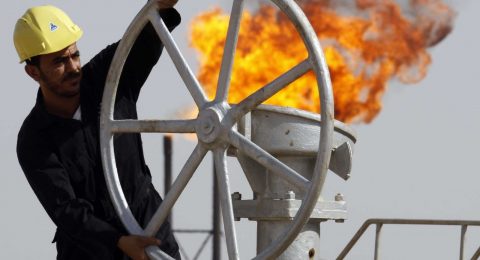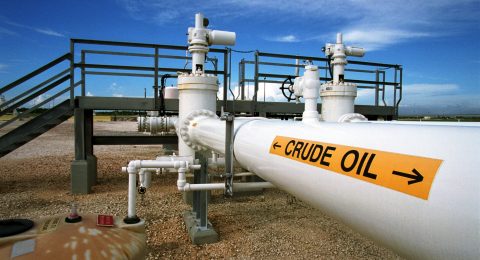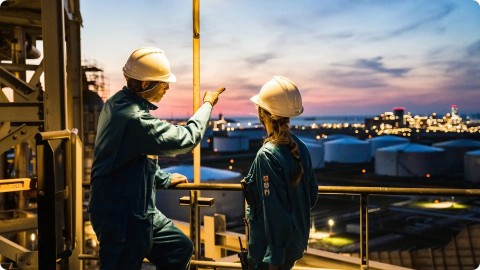The seminar held by the Iraqi Forum of Intellectuals and Academics – and which I talked about last week – had a good presentation about Iraq’s upstream oil developments.
It was done by Faleh Alkhayat, former director-general of planning in the Ministry of Oil, who highlighted developments in the southern upstream sector since the famous – or infamous – bid rounds of 2009 and sale of Iraqi oil fields to international oil companies (IOCs).
After the first bid round, 45 billion barrels of reserves in four fields (Rumaila, Zubair, West Qurna 1 and Meesan) were awarded to IOCs. These were already producing and under the management of South Oil Company for decades and came with all its accumulated experience.
In the second bid round of 2009, the sale was completed by awarding almost 48 billion barrels of reserves in seven oil fields to IOCs. This reduced the role of the national companies, especially in the south, to being mere watchers, coordinators and weak participants in joint operating committees. Or at best managing some small and marginal fields.
The commercial production which triggers cost recovery was set so low that it was realized in almost one year for the first round fields. Therefore, the rest of the development is actually financed by Iraq and not by IOCs.
Many analysts said that the contracts were illegal since they had bypassed the parliament as the law demanded. Not even an attempt to get a blanket mandate from parliament for the Ministry of Oil to go ahead was sought. This point may no longer be important as the Iraqis would say “the axe hit the head”.
Alkhyat went on to say that the average annual increase in southern Iraq production from 2010 to the first quarter of 2015 was only 230,000 b/d. But this modest increase cost Iraq billions such that a per barrel cost is now almost $9 a barrel for all production and over $20 a barrel for new and incremental production, as deduced from a study by the Ministry of Oil for 2010 to the end of 2013.
Iraqis have always prided themselves by having a cost of no more than $2 to $3 a barrel before 2003. Even adjusting for an increase in development and production cost internationally would have only doubled these numbers. The IOCs obviously do not care about controlling the cost as they are recovering it irrespective.
Even the IEA estimated in 2012 that the development cost in Iraq is $12,000 (Dh44,040) a barrel per day while it was $2,000-$5,000 before for brown- and greenfields respectively.
Iraq is now, by admission of its minister, struggling to pay IOCs, especially after the decline in oil prices. It is currently forced to allocate as much as 850,000 b/d to meet back payments due and to the end of this year.
One of the major problems in this entire episode is that Iraq gave IOCs the easier part of developing the fields while the Ministry assumed the responsibility for the most difficult parts in gas treatment, oil pipelines, storage, terminals, water injection and so on. As most of these are delayed and the production capacity exceeds that of transportation, Iraq would have to compensate the IOCs for shutdown in production, with an attendant loss in revenues as well.
For Iraq, gone are the dreams of 12 million barrels a day by 2017 and even the reduced target of 9-mbd by 2020 seems to be impossible judging by previous performance, the logistics requirements and, finally, by prospects in the oil market.
The Ministry is now engaged in negotiations with IOCs to see what can be done to reduce targets, expenditure and to share the burden of the decline in prices, though the latter would say this stems from market conditions and thus outside of their control.
The presentation concluded with a set of recommendations including the speeding up of negotiations with IOCs and informing the Iraqi people of the dark reality of the situation, to abandon the target of 9 mbd by 2020 and seek 6 mbd by 2025, to freeze any substantial increase in production for the next two to three years to allow the transportation, storage and other requisites to be completed.
Another was to seek by all means available stopping the flaring of gas, as well as to re-establish the National Oil Company and invigorate its work and mandate to manage all aspects of the industry in Iraq. That would include the management of IOC contracts provided that it is independent and run by highly qualified professionals and board members.
Needless to say these are easier said than done as the ministry never heeded the call of many Iraqi experts since 2009, who had warned of the consequences of setting high targets and the enormous work required to achieve them. Will this time be different?
Let us hope so.
The writer is former head of the Energy Studies Department at the Opec Secretariat in Vienna.
Source: Gulf News











